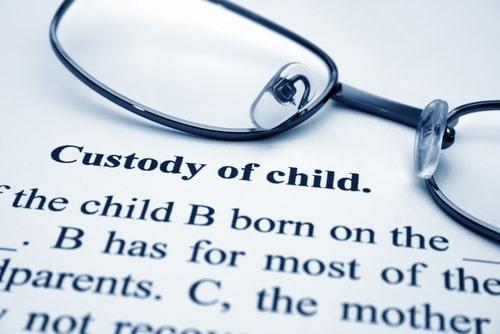Common Types of Child Custody Arrangements in New York Divorce Cases
For divorcing parents, child custody is often one of the most difficult and emotional issues to navigate during the process of ending their marriage. Courts in New York always put the best interests of the child first when making decisions about custody. As a result, there are several types of custody arrangements that may be used based on a family’s circumstances, the specific needs of the children, and other issues that may affect the children’s best interests. By understanding the issues addressed in these cases and the different types of child custody arrangements that may be available, parents can make an informed decision about how to proceed during the divorce process.
Legal vs. Physical Custody
One distinction to be aware of when considering a child custody arrangement is the difference between legal and physical custody. Legal custody involves the parents’ rights and responsibilities to make important decisions about children’s upbringing, and it addresses issues such as medical treatment and other health concerns, educational matters, and religious practices. Physical custody will address where the children will live and when they will spend time with each parent. A parent will generally have the right and responsibility to make day-to-day decisions about issues related to children’s health and safety when the children are living or staying with them.
Sole Custody vs. Joint Custody
Depending on a family’s unique circumstances, legal and/or physical custody may be shared by parents, or one parent may be granted sole custody. In most cases, courts favor joint custody arrangements, in which parents share legal custody equally. This means that they will share the responsibility for making major decisions about the children’s upbringing, and they will need to work together to address these issues and provide for their children’s needs. Sole legal custody may be appropriate if parents are unable to cooperate to make decisions or if one parent has not been involved in these matters in the past.
Parents will also usually be able to share physical custody of their children, even in situations where sole legal custody is granted to one parent. While physical custody may be split equally in some situations, children will often live primarily with one parent, who is known as the custodial parent. The non-custodial parent will have the right to regular visitation time with the children.
In cases involving shared physical custody where parents have equal or near-equal amounts of time with the children, there are a few unique considerations that may need to be addressed. The parents will need to be able to cooperate and communicate on a regular basis regarding all aspects of raising their children. They will often need to be willing to be flexible and make adjustments to parenting time schedules based on when parents are working, when children will be attending school or activities, and other factors. While these types of arrangements will not be appropriate in every situation, they may be ideal in situations where both parents have been highly involved in their children’s lives and are able to cooperate effectively without exposing children to conflict.
Contact Our Hudson Valley Child Custody Attorney
As you address issues related to child custody during your divorce, it is important to consider your options for sharing legal and physical custody. You will want to make sure your parental rights will be protected while also putting your children’s needs and best interests first as you determine solutions that will work for your family. At Law Offices of Robert S. Lewis, P.C., our Rockland County child custody lawyer can help you determine the best approach to take during your case, and we will advocate for solutions that will allow you to maintain positive relationships with your children and meet their needs in the years to come. Contact us at 845-358-7100 to arrange a free consultation and learn how we can help you resolve these issues effectively.
Sources:
https://www.nysenate.gov/legislation/laws/DOM/240
https://www.nycourts.gov/courthelp/family/custody.shtml
https://ww2.nycourts.gov/COURTS/nyc/family/faqs_custodyandvisitation.shtml



